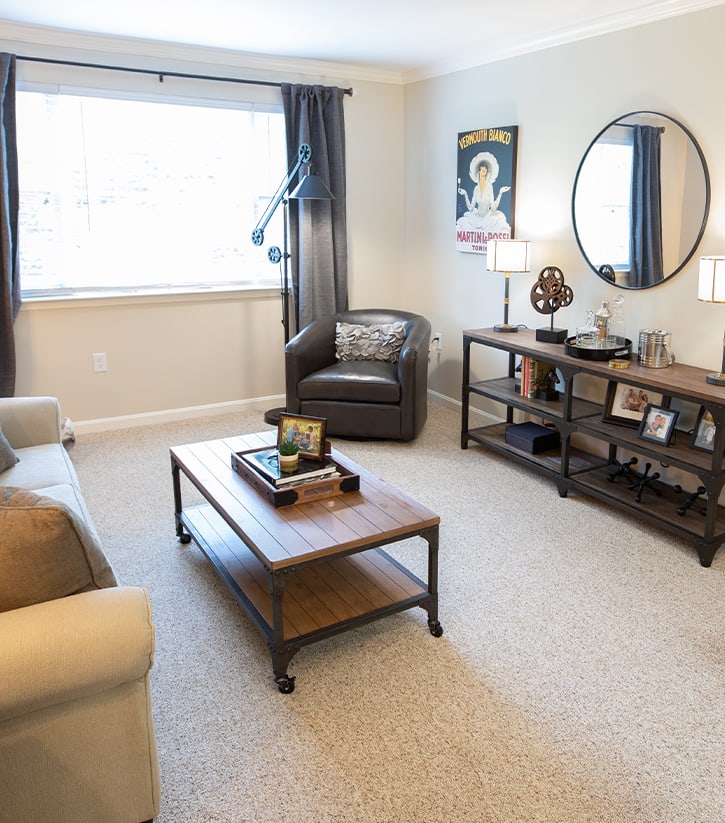Watching a loved one experience memory loss is never easy. Conditions like Alzheimer’s disease and other forms of dementia bring changes that touch every part of life, from communication and relationships to safety and independence. As these challenges become more complex, families often start to consider options beyond what can be provided at home.
One supportive and compassionate solution is a memory care community. These specialized environments are designed to help individuals living with dementia enjoy comfort, dignity, and meaningful connection, even as their cognitive needs change.
Learning more about the advantages of memory care can help families feel more prepared to make the right decision for their loved one. While it’s natural to feel apprehensive, memory care can be a step forward, not away, toward a higher quality of life for everyone involved.
What Is Memory Care?
Memory care is a specialized form of senior living that supports individuals with Alzheimer’s disease, dementia, or other memory-related conditions. It combines the personal assistance found in assisted living—like help with dressing, bathing, and medication—with added safety measures, enrichment activities, and caregiving approaches tailored to cognitive decline.
What sets memory care apart is the emphasis on structure, safety, and emotional well-being. Staff are trained to navigate memory loss with compassion and patience, responding to challenges like confusion, wandering, and agitation in ways that maintain each resident’s dignity.
In addition to 24-hour support and supervision, memory care often includes secure environments, daily routines, and therapeutic programs that promote connection, reduce stress, and stimulate memory in gentle, effective ways.
Features of Memory Care
- Specifically supports individuals with Alzheimer’s disease, dementia, or other memory impairments.
- Provides 24/7 supervision and a higher staff-to-resident ratio for enhanced safety and support.
- Staff receive specialized training in dementia care, including communication, redirection techniques, and behavioral support.
- Daily routines are more structured to reduce confusion and anxiety.
- Communities feature secure layouts, clear visual cues, and calming design elements to support cognitive challenges.
- Activities focus on memory retention, sensory stimulation, and emotional connection.
In short, assisted living offers a supportive, independent lifestyle for seniors, while memory care provides a safe, structured environment with specialized support for individuals navigating cognitive decline.

Why Memory Care Matters
When a loved one begins to experience memory loss, families are often faced with difficult questions. How can we keep them safe? What kind of support do they need? Is staying at home still the best option?
Memory care communities exist to answer those questions with compassion, expertise, and purpose. These specialized environments are designed for individuals living with Alzheimer’s disease, dementia, or other forms of cognitive decline. They offer daily structure, emotional support, and a sense of familiarity—while also relieving families from the exhausting responsibilities of full-time caregiving.
Choosing memory care is not a step back—it’s a step toward greater safety, connection, and peace of mind. Below are five meaningful advantages of choosing a memory care community for your loved one.
A Safe, Supportive Environment
Dementia often comes with increased safety risks that can be difficult to manage at home—such as wandering, falls, or forgetting to turn off appliances. Memory care communities are designed specifically to minimize these risks and promote peace of mind for families.
Key safety features often include:
- 24/7 monitoring by trained staff to ensure resident safety
- Secured entrances and exits to prevent wandering and confusion
- Layout designs that reduce disorientation, including easy-to-navigate hallways and familiar cues
- Supportive infrastructure, such as handrails, non-slip flooring, and accessible bathrooms
- Soothing, well-lit environments that help reduce anxiety and overstimulation
- Clear signage and visual cues to promote confidence and independence
These design elements allow residents to move freely, socialize, and enjoy activities—all within a secure, carefully monitored environment.
For families, this provides much-needed relief. The constant worry about safety is replaced with reassurance, allowing for more meaningful, relaxed visits centered on connection rather than supervision.
Opportunities for Social Connection
Isolation can take a heavy toll on individuals with memory loss. As verbal communication becomes more difficult, relationships can fade. Memory care communities offer consistent opportunities for meaningful social interaction that help residents feel connected, supported, and understood.
Social benefits of memory care include:
- Shared meals and group activities that foster daily connection and reduce loneliness
- Spontaneous moments of interaction—a smile, a song, or a gentle hand—that offer comfort and familiarity
- Supportive staff trained in non-verbal communication, using body language, tone, and patience to build trust and understanding
- A warm, inclusive atmosphere where residents are encouraged to engage at their own pace
- Opportunities for family involvement, including visiting hours, events, and collaborative care planning
These moments of connection are essential for emotional well-being. They remind residents that they are not alone—and that their presence still matters deeply to those around them.
Continuity of Care & Peace of Mind
Dementia is a progressive condition, and care needs can shift quickly. Memory care communities are designed to adapt, providing stable, compassionate support as your loved one’s needs evolve.
Key advantages of continuity of care include:
- Ongoing monitoring of changes in mood, behavior, and health to adjust care proactively
- Customized routines and interventions that evolve with each stage of dementia
- Consistent caregiving teams who know each resident personally, creating trust and familiarity
- Collaborative care planning that includes regular updates and family involvement
- Minimized transitions, reducing stress and confusion for both residents and their loved ones
- A stable, predictable environment where residents feel secure and families gain peace of mind
This model of care ensures that your loved one is not just watched over, but truly known and supported—every step of the way.
Why Families Choose Paul Spring for Memory Care
Discover the supportive memory care neighborhood at Paul Spring senior living in Alexandria, VA, where safety, dignity, and meaningful connection come first.
Experience the difference of personalized attention through RUI Concierge, enjoy chef-prepared meals with Taste of RUI, and stay active with our wellness-focused RUI FIT program. With our Care Impact program we ensure your loved one receives heartfelt companionship every day.
Schedule a tour today and see how our memory care neighborhood can help your loved one live the life they’ve earned and deserve.












